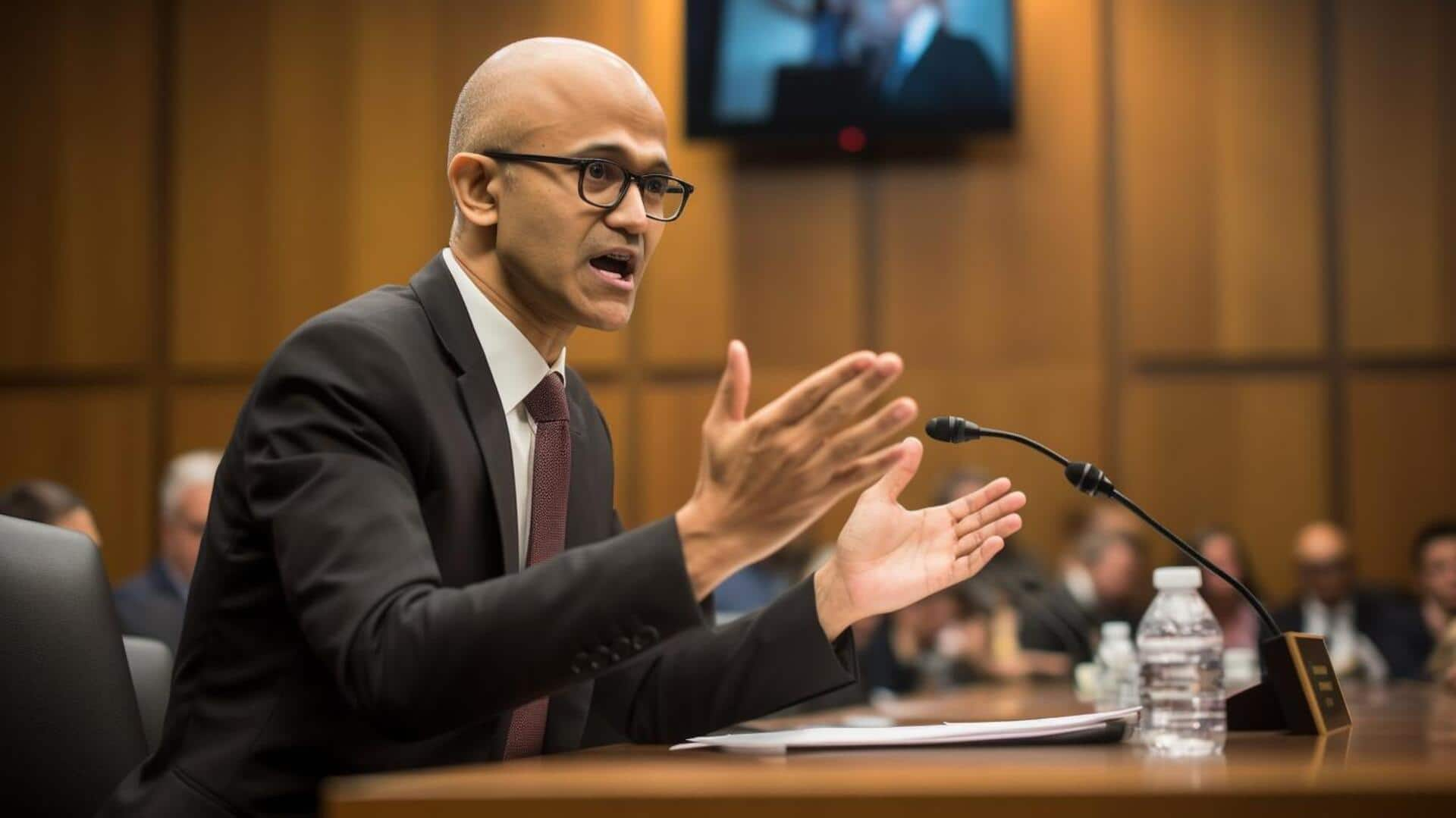
Microsoft CEO blames Google for Bing's struggles in search market
What's the story
Microsoft's CEO Satya Nadella recently testified in the ongoing antitrust trial against Alphabet, Google's parent company. He argued that Google's unfair practices have led to its dominance as a search engine, leaving Microsoft's Bing in the dust. Nadella pointed out that agreements making Google the default browser on smartphones and computers have made it difficult for Bing to compete.
Details
Nadella denies Bing's AI adoption impacting market share
During his testimony, Nadella denied that Bing's use of artificial intelligence (AI) had caused any major shifts in its market share. Google has claimed that AI programs like chatbot ChatGPT have increased competition in the search engine market. However, Nadella argued that users don't have much choice when it comes to switching out of default web browsers on their devices. He added that while Bing is an alternative, it's not the default option for most people.
What Next?
Google's lead litigator questions Microsoft's missteps with Bing
Google's lead litigator, John Schmidtlein, questioned Nadella about instances where users switched from Bing to Google even when Microsoft's search engine was the default on their devices. Schmidtlein suggested that Microsoft made mistakes with Bing that prevented it from truly rivaling Google. The US Department of Justice's antitrust case against Google focuses on deals the company made with Apple, Samsung and other device makers to use Google's search engine as the default.
Insights
Microsoft's history with Google
Interestingly, Microsoft faced similar accusations in the 1990s when it was alleged to have set up its Windows software in ways that walled off applications made by other tech companies. Ironically, the constraints posed by the government's antitrust case against Microsoft helped provide a springboard for Google to turn its search engine into a dominant force. Despite Microsoft's success in other areas under Nadella's leadership, Bing remains a distant second in the search engine market.